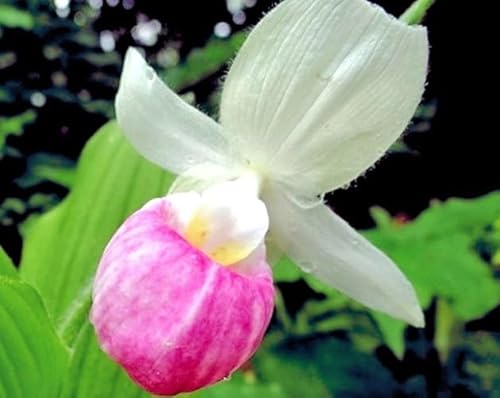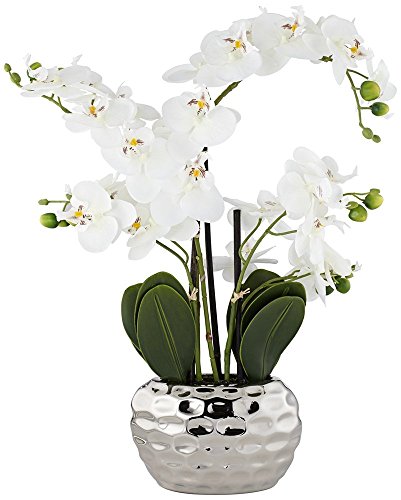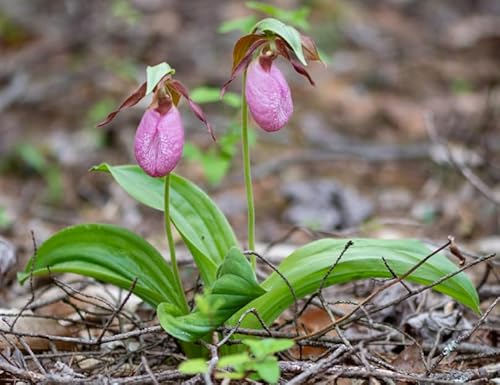G
Greenthings
Guest
On January 18 2005, ManoloArias of Peruflora offered people around the world and visitors to the WOC in Dijon France eight Pk species flasks, #751 to #758. They also offered two Pk hybrid flasks, :#759 Phrag czerwiakowianum x Pk, and # 760 Phrag wallisii x Pk
It was predicted in 2005 and proven to be correct in 2007 that some of the flasks numbered 751 through 758 would not contain Pk species, but something else. It was rumoured that illegal non-Pk seeds were sold as Pk seeds to Peruflora.
This month, February 2007, the prediction from two years ago was confirmed by Chuck Ackers and Jerry Fischer, who found Non-Pk seedlings on their benches that had come from Pk species flasks purchased from Peruflora in Lima, on a trip there in 2005. Manolo Arias manager of Peruflora, confirmed a mistake was made in a letter of apology to Chuck Acker.
I have been asked privately by a number of people to make comments on how did this Peruflora Pk flasks fiasco could have happened.
Here is how I see it:
1) Jerry Fischer, echoing Manolo Arias, claims that this was due to a mix up of labels in Peruflora's laboratory, which he says is one of the best labs he has seen in the world. I have pictures of Peruflora's Lab and note that it is a well organized laboratory, which makes a mix up of labels highly unlikely.
2) Many, if not most, believe the cause to be illegal non-Pk seeds purchased as Pk seeds in 2005.
Which of the two is is correct? Well, let's see,
1) If Jerry is correct
We should soon hear from others, who purchased Peruflora Pk hybrid flasks # 259 and/or # 260 made with Phrag zcerwiakowianum and Phrag wallisii.
Complaints should be heard that in some of these two Pk hybrid flasks pure
Pk seedlings were found. It must be so, for such is the consequence of mixing species and hybrid flask labels in a well organized laboratory.
If such complaints do come in, you must check that these were flasks purchased in 2005 when the oiginal flask list was still valid and no new
hybrids had been made by Peruflora. Flasks purchased at the WOC in Dijon
France would all qualify.
.
If no such complaints do come in, then label switching becomes extremely doubtful. For every Pk species flask with a Pk hybrid label, there must be a Pk hybrid flask with a Pk species label.
2) If illegal seed purchase and substitution is correct and the cause of Peruflora's Pk flask fiasco, you bet angry customers having paid up to $1,080 for a single Pk species flask will flower them out. If they find out that these plants could not possibly be the result of crosses # 259 or # 260, then illegal seed purchase is confirmed and the label mix up story is false.
Time will tell.
It was predicted in 2005 and proven to be correct in 2007 that some of the flasks numbered 751 through 758 would not contain Pk species, but something else. It was rumoured that illegal non-Pk seeds were sold as Pk seeds to Peruflora.
This month, February 2007, the prediction from two years ago was confirmed by Chuck Ackers and Jerry Fischer, who found Non-Pk seedlings on their benches that had come from Pk species flasks purchased from Peruflora in Lima, on a trip there in 2005. Manolo Arias manager of Peruflora, confirmed a mistake was made in a letter of apology to Chuck Acker.
I have been asked privately by a number of people to make comments on how did this Peruflora Pk flasks fiasco could have happened.
Here is how I see it:
1) Jerry Fischer, echoing Manolo Arias, claims that this was due to a mix up of labels in Peruflora's laboratory, which he says is one of the best labs he has seen in the world. I have pictures of Peruflora's Lab and note that it is a well organized laboratory, which makes a mix up of labels highly unlikely.
2) Many, if not most, believe the cause to be illegal non-Pk seeds purchased as Pk seeds in 2005.
Which of the two is is correct? Well, let's see,
1) If Jerry is correct
We should soon hear from others, who purchased Peruflora Pk hybrid flasks # 259 and/or # 260 made with Phrag zcerwiakowianum and Phrag wallisii.
Complaints should be heard that in some of these two Pk hybrid flasks pure
Pk seedlings were found. It must be so, for such is the consequence of mixing species and hybrid flask labels in a well organized laboratory.
If such complaints do come in, you must check that these were flasks purchased in 2005 when the oiginal flask list was still valid and no new
hybrids had been made by Peruflora. Flasks purchased at the WOC in Dijon
France would all qualify.
.
If no such complaints do come in, then label switching becomes extremely doubtful. For every Pk species flask with a Pk hybrid label, there must be a Pk hybrid flask with a Pk species label.
2) If illegal seed purchase and substitution is correct and the cause of Peruflora's Pk flask fiasco, you bet angry customers having paid up to $1,080 for a single Pk species flask will flower them out. If they find out that these plants could not possibly be the result of crosses # 259 or # 260, then illegal seed purchase is confirmed and the label mix up story is false.
Time will tell.










































